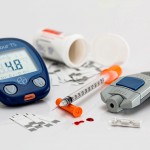British scientists developed a revolutionary method for screening cancer using breath-analyzing technology. In a preliminary study involving more than 300 patients the instrument was capable of diagnosing those with esophageal and stomach cancer with 85% accuracy.
Cancer is a very heterogeneous disease, the diagnosis of which largely depends on its origin, malignancy, and location. While some cancers can be detected rather early on (e.g. skin cancer), others that are rooted deeper inside are frequently much trickier to detect. Early diagnosis has proven crucial for overcoming the disease, and the lack of proper diagnostic tools contribute to the mortality of the disease as much as the lack of treatment options does.
A group of researchers from the Imperial College London now developed a “breathalyzer” for screening esophageal and stomach cancers previously only diagnosed with endoscopy, a very invasive and expensive method that frequently results in complications. The novel test is based on a technology called selected ion flow-tube mass spectrometry, capable of analyzing fragments of chemicals within mixtures of gases.
“A breath test could be used as a non-invasive, first-line test to reduce the number of unnecessary endoscopies. In the longer term this could also mean earlier diagnosis and treatment, and better survival” said trial researcher Dr. Sheraz Markar.
The results of a preliminary trial on 335 patients were presented at the European Cancer Congress and showed the instrument was 85% accurate at identifying cancer, based on detection of five distinct chemicals – butyric, pentanoic and hexanoic acids, butanal, and decanal. The test also proved good at identifying those unaffected, and the researchers are already planning a larger clinical study involving undiagnosed patients.
“[Cancer cells] produce a different mixture of chemicals. This study suggests that we may be able to detect these differences and use a breath test to indicate which patients are likely to have cancer of the esophagus and stomach, and which do not. However, these findings must be validated in a larger sample of patients before the test could be used in the clinic.” Dr. Markar added.
The team speculates the test could be used to identify other types of cancer in the future, such as colorectal or pancreatic cancer. Across the pond, at the University of Southern California (UCF), trials of yet another similar instrument called “BreathLink” are also underway for breast cancer, showing promising preliminary results as well.
Scientist hope such tests could help us diagnose cancers early on in a much larger group of people, potentially saving millions of lives in the future. The technology is here, and it´s quite frankly, well, breathtaking.
Learn more about the recent development in this video.
By Luka Zupančič, MSc, University of Applied Sciences Technikum Vienna











